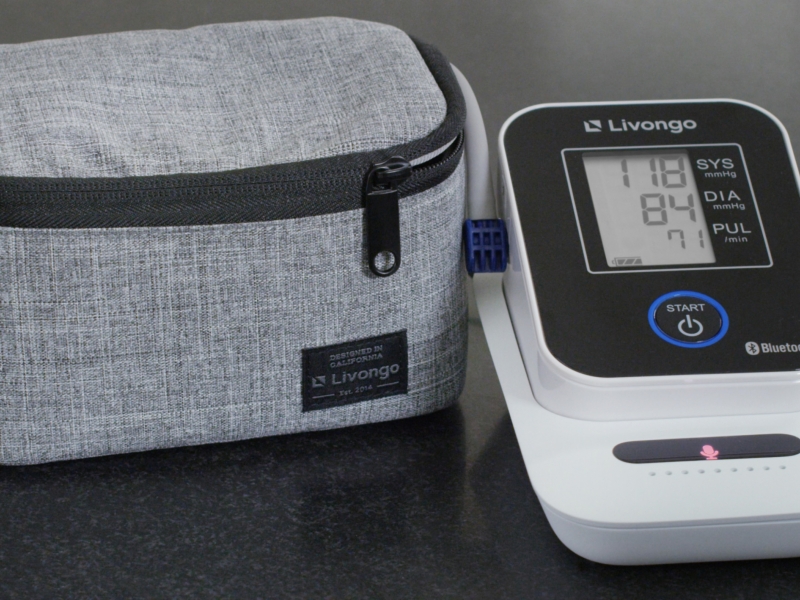Livongo takes aim at high blood pressure

Livongo is branching out beyond diabetes, tackling hypertension as Glen Tullman looks to expand the health-tech company’s hardware and software into a broader platform that includes data analytics.
The company added a cellular-connected blood-pressure monitor with voice interaction capability alongside its glucometer. Livongo aims to help employers reduce their medical costs by using technology to get employees to more closely monitor chronic conditions, such as diabetes, and stay on track with treatment, which reduces the risk that they’ll end up in the hospital. If patients opt in, the devices can automatically send data to the patients’ healthcare providers and Livongo staff, who can alert patients or their caregivers if a dangerous situation occurs.
In less than five years, Livongo has signed up more than 500 customers, mostly large self-insured companies such as FedEx, Amazon, Lowe’s, Target and Delta, along with four of the country’s seven largest insurers. The company has raised $237 million, including $105 million earlier this year in a round that valued Livongo at more than $800 million. Backers include venture capital heavyweights Kleiner Perkins Caufield & Byers, General Catalyst, Microsoft and Sapphire Ventures, the venture fund spinout of software giant SAP.
Tullman, the former CEO of healthcare-software company Allscripts, is eyeing a possible IPO for Livongo next year.
The company, which has operations in Chicago and Mountain View, Calif., has seen headcount grow to nearly 500 people from about 200 a year ago, with some of the growth coming through acquisitions, such as Chicago-based Retrofit. Other deals are a possibility.
Tullman expects Livongo’s revenue to more than double this year to about $67 million. The company charges corporate customers about $75 per month per active user of its program. He says Livongo saves the companies an average of $100 per user.
Diabetes affects millions of people, which means there are plenty of competitors in the space, including Amazon.
“Many players are looking into that sandbox. It’s not only startups, but hospitals, insurance and large tech are beating that drum,” said Dr. Steve Xu, a dermatologist and medical director of Northwestern University’s Center for Bio-Integrated Electronics. “There are a lot companies who want to sell to employers to improve health. The employers are where the money is. That’s where the pain is. For these companies, it’s a rounding error compared to their overall health costs.”
Livongo's approach stresses connecting patients with those who can keep them healthy. It's trying to thread the needle of being available when people want them but not being intrusive. With diabetes it has found waiving co-pays and offering people free test strips can pay bigger dividends in keeping them out of the hospital.
Jefferson Health, an academic medical center in Philadelphia with an 14-hospital network, started using Livongo two years ago for its employees. Diabetes-related medical costs are down 17 percent, with a 21 percent drop emergency room visits by patients with diabetes among the group that has been on the program the longest. “There’s been nothing like it,” says Dr. Stephen Klasko, the hospital system’s CEO.
Tullman’s goal is to grow Livongo’s user base of people diabetes from 100,000 to 1 million in the next few years. But that’s just a start. “We’ve moved from diabetes to diabetes prevention, hypertension and weight management,” says Tullman, who adds that nearly two-thirds of people already using Livongo for diabetes also have hypertension. “We plan to expand into areas like behavioral and respiratory conditions.”
The big opportunity may lie in the data the company is gathering, and ways in which it can be used to improve healthcare. Tullman says Livongo has the world’s largest database of real-time blood-sugar readings from people with diabetes patients. He likens it to Amazon, except the stakes are higher. “We’re aggregating data, interpreting it, applying it. I can tell you what makes men say yes to an offer when women say no.”
If he succeeds, investors might also say yes.
https://ift.tt/2qjOnrd


Comments
Post a Comment